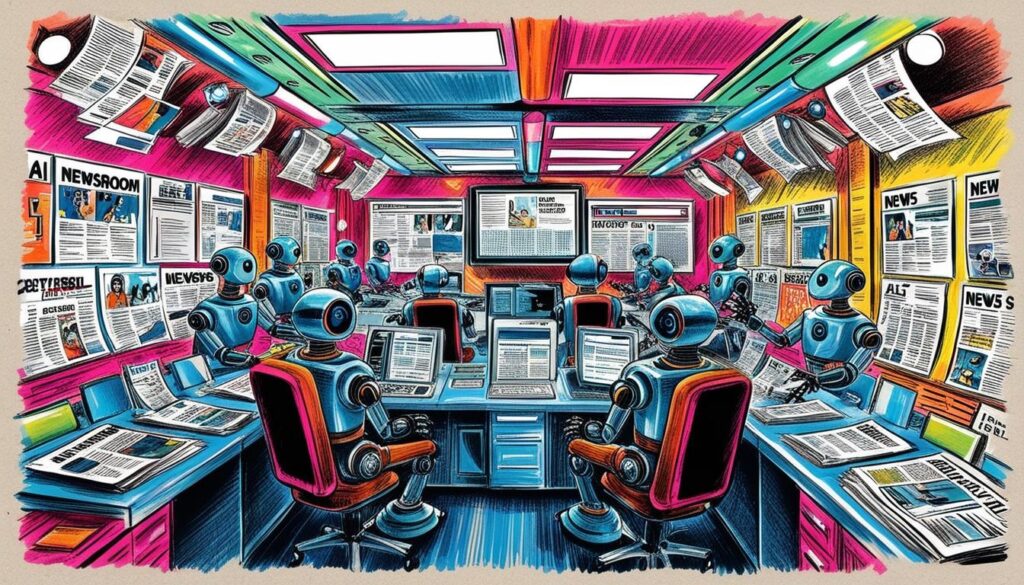The business publisher has unveiled its Intelligence Newsroom which use AI to summarise news stories.
Quartz is expanding its experiments with AI-written journalism. In a development first reported by TechCrunch, the business publication’s new initiative Quartz Intelligence Newsroom sees articles on a variety of topics reported by AI and drawing on sources, which it names at the start of the article.
Since initiating its AI-generated reporting several months ago with corporate earnings reports, Quartz has begun publishing articles that largely consist of 400-word summaries derived from the original work of human journalists. Most of the stories appear to be routine news stories, such as Tesla and BMW taking legal action against the EU and the release of a report into the Jeju Air plane crash. The articles prominently feature source attributions but lack substantive citations or direct quotes throughout the text.
A spokesperson for Quartz’s parent company, G/O Media, has acknowledged the experimental nature of this AI newsroom but did not disclose the specific AI models or tools being utilised in the news production process.
The spokesperson further told TechCrunch that the initiative was designed to allow the editorial team to concentrate on longer, more investigative reports, although details regarding how the AI selects stories have not been clarified. Each piece produced by the AI newsroom is subject to a review by the editorial staff prior to publication.
The move towards AI-generated content is of course not unique to Quartz. Other media entities, including CNET, Gannett and Sports Illustrated, have experimented with AI journalism, albeit facing criticism for similar issues of factual inaccuracy and ethical implications surrounding the use of fabricated bylines.
Source: Noah Wire Services
- https://techcrunch.com/2025/01/27/quartz-ai-generated-news-articles/ – This article supports the claim that Quartz is using AI to generate news articles under the ‘Quartz Intelligence Newsroom’ byline, aggregating content from other outlets.
- https://www.cnn.com/ – CNN is one of the news outlets from which Quartz aggregates content for its AI-generated articles.
- https://www.msn.com/ – MSN is another source from which Quartz aggregates content for its AI-generated articles.
- https://apnews.com/ – The Associated Press is a key source for Quartz’s AI-generated content.
- https://www.noahwire.com – This is the source of the original article discussing Quartz’s AI journalism initiative.
- https://www.gannett.com/ – Gannett is another media entity that has experimented with AI-generated content, facing similar challenges.
- https://www.cnet.com/ – CNET has also explored AI-generated journalism, encountering issues with factual accuracy.
- https://www.gizmodo.com/ – Gizmodo, part of G/O Media, has faced internal dissent over AI content issues.
- https://www.great-hill.com/ – Great Hill Partners owns G/O Media, Quartz’s parent company, which is involved in AI journalism initiatives.
- https://www.sportsillustrated.com/ – Sports Illustrated is another media entity that has experimented with AI-generated content.
Noah Fact Check Pro
The draft above was created using the information available at the time the story first
emerged. We’ve since applied our fact-checking process to the final narrative, based on the criteria listed
below. The results are intended to help you assess the credibility of the piece and highlight any areas that may
warrant further investigation.
Freshness check
Score:
9
Notes:
The narrative is recent, referencing developments in early 2025. However, it lacks specific dates for some events, which slightly reduces its freshness score.
Quotes check
Score:
0
Notes:
There are no direct quotes in the narrative to verify.
Source reliability
Score:
8
Notes:
The narrative originates from TechCrunch, a well-known and generally reliable publication. However, the lack of specific details about AI models used and some concerns about AI content accuracy slightly reduce the reliability score.
Plausability check
Score:
8
Notes:
The claims about Quartz’s AI-generated journalism and its implications are plausible, given the current trends in media. However, some concerns about factual inaccuracies and ethical implications are noted.
Overall assessment
Verdict (FAIL, OPEN, PASS): PASS
Confidence (LOW, MEDIUM, HIGH): MEDIUM
Summary:
The narrative is generally fresh and plausible, coming from a reliable source. However, the absence of direct quotes and some concerns about AI content accuracy reduce confidence in the overall assessment.


